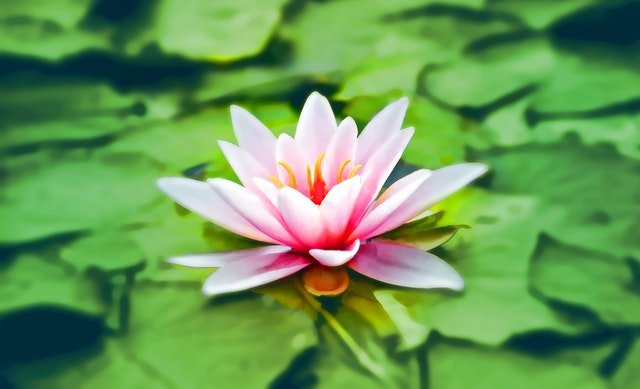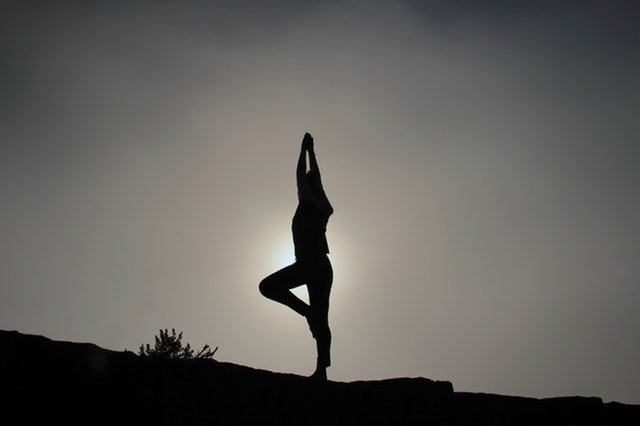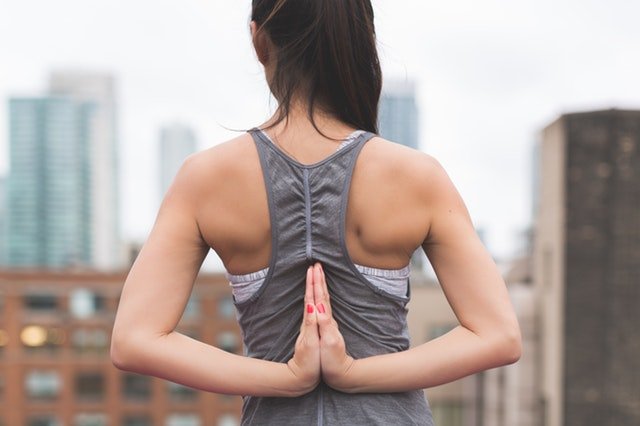
Note: I am in no way diminishing the positive benefits of medication or those who require it, these are just some of my thoughts on how I have successfully reduced my own anxiety issues through alternative means. If you need medication and you find it helps you, keep doing whatever works. I used "easing anxiety" in the title, as I in no way think that this is a cure, but a lot of people find these types of practices immensely beneficial for their anxiety.
Looking back, I have always been an extremely anxious person. Everything unfamiliar seems to give me anxiety, new people, new places, new things. The fear of being laughed at for not knowing what I am doing.
I am someone who seems to react in a very extreme way to a lot of medication. Even over the counter painkillers or sleeping aids can prove very strong for me and put me in a "zombie" sort of place for an entire day after I take them. So prescription medication for anxiety has never been something I have found helpful.
Instead, I chronically would avoid situations that stressed me out for a long time. As one of my biggest triggers was job interviews, you can imagine this could be pretty debilitating for me. Whether you are medicating or not for your anxiety, I really would love to recommend simple breathing techniques and mindfulness to you.

Stopping your thought process by focussing on your breath for ten inhales and exhales, concentrating on fully expanding and deflating your lungs, and breathing from your diaphragm, can be very helpful if you feel yourself starting to slip into a panic. Now of course, if you are already mid panic attack it may be too late for this sort of measure, but if you can learn to catch yourself at the beginning of your anxiety spiral, simple breath focus can do so much for you.
Another great tip is mindfulness. Stop and focus on one of your senses. I find touch helpful because it brings you back to earth so to speak. If you can find a peaceful scene to look at, or just an object that has a pleasing colour, smell or texture to you, it can serve to break up the cycle of negative thinking.

Both of the above techniques are really great for trying to interrupt anxiety as it begins to rise. To reduce your anxiety long term, I really, really recommend yoga. And you don't need a fancy school or expensive online membership either. Or even a mat, if you have a soft rug or carpet you can practice upon. Start with some Youtube videos. Yin yoga is one of my absolute favourites for reducing anxiety. For this you don't even need Youtube. Google a seated or floor posture, move into it slowly and stay there for 10 breaths, a few minutes, even five minutes. The longer you stay, the more your breath and your body will start to relax. Some examples of postures to try this with are:
Seated forward fold (Paschimottanasana): Sit straight with your legs extended in front, feet touching. Bend forward and grab your feet, ankles or calves, whichever you can reach easily. You can use pillows and bolsters under your chest if you don't naturally fall down to your legs, you will find if you spend a few minutes in this posture your foward fold will naturally start to increase.
Reclining bound angle pose (Supta Baddha Konasana): Sit with legs outstretch, then bend your knees. Allow your legs to fall to the sides and press the soles of your feet together. Then lay down upon a bolster, pillow or flat on the ground.
Knees to chest (Apanasana): Lay flat on your back and bring your knees to your chest, hug your knees with your arms.

A simple meditation practice can really help too. You do not have to start meditating immediately for hours a day and move to Thailand to pursue Buddhism. Even five minutes of observation on the breath can make a huge difference. The common argument is "but I can't concentrate". Nobody can, especially when you start. It takes time to train the "monkey mind" to co-operate. But once you do you really can start to feel how this changes your interaction to other people and to stressful situations. Give it a try!
For some of us, our anxiety is so debilitating we may live with it for life. For others, it waxes and wanes with events in our life, and for some, it stays awhile and then leaves us. For everyone, finding techniques to deal with and learn to reduce it, in addition to therapy and/or medication can be so helpful. I'm a big believer in different things helping different people, and that sometimes you need to try many things before you find what works for you...so it's always worth a try with something new!
Once again, this is not intended to belittle anyone's severe anxiety disorder or any type of medication they take to deal with it. It's just a little something I have found helps bring me out of my panic spiral and allows me to refocus on something else. I can feel a huge difference in my anxiety levels when I let these practices slip and when I get back into them again. Also, even if you don't have an anxiety disorder these techniques can be very helpful to stop you over-reacting in stressful situations that are making you fearful or angry. Give them a try, I hope they are of some use to you!
Have a beautiful day, and remember to breathe!

(All images are Pexels stock photos)
nice post. i am anxious too and meditation help truly.
It really does. Thank you!
Excellent post, great advice. Looking around, I am not even sure if some people know how to breathe. Keep up the good work.!
Thank you, and I agree...most people don't take the time to breathe!
Those are great meditation positions thanks a lot for sharing
Thank you for reading!
Very cool! Thank you for this. I agree, especially with the breathing technique. I find it so cool that something so simple can be SO effective. I am constantly breathing in and out, holding, releasing, continuous breaths too, and also as you stated with the focusing on senses - I personally have been using the touch sense that you also mentioned to do the same, to bring myself back, to get out of those thoughts, fears and whatever else, to remind myself of what I am and where I am.
The yoga and meditation I have not tried so much, but these techniques seem handy for sure. And agree with you with the medication. So many side effects can be involved. If it can be prevented and stopped naturally with breathing, with focusing on senses, with yoga/meditation, then absolutely, why would one not use these!? As well as being completely free. It's all good lol.
Thanks for sharing.
You're welcome, thank you for your thoughtful comment. I think that any form of paying attention to the breath is sort of a meditation, even if you are not consciously calling it that!